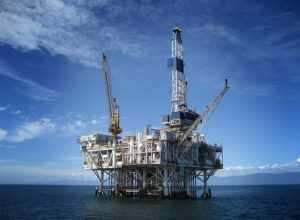Working on an offshore oil rig is one of the most dangerous jobs that a person can undertake. However, there are numerous benefits to these positions. Even an entry-level oil rig worker can earn between $47,000 and $80,000 each year. Electricians, installation managers, and other higher-level positions can make between $83,000 and $160,000 per year. This income is even more impressive considering that many employees will only work for six or nine months each year.
Another potential advantage is that oil rig workers have significant flexibility with their jobs and usually work in rotations, lasting between seven and 28 days each. For example, an employee who works on a seven/seven rotation will usually work seven consecutive days, then have seven days off. Other workers may work a 14/14 or 28/28 rotation. If that is the case, the worker will have 14 or 28 days off for every 14 or 28 days worked, depending on the rotation setup. Oil rig jobs also typically offer opportunities for career advancement.
However, there are numerous disadvantages to working on an oil rig. One of the most important disadvantages for workers is that they may need to be away from home for between seven and 28 days at a time. More significantly, working on an oil rig is an extremely dangerous job. The work is physically demanding, and many workers are prone to severe injuries, including fatigue, muscular sprains, and strains. Workers can also suffer injuries from machinery malfunctions, explosions, burns, falls, and chemical exposure on a job site.
If you have suffered injuries in an oil rig accident, you can in some circumstances pursue monetary compensation for your medical treatment and other damages. Sometimes, these accidents result from poor maintenance or defective equipment. A knowledgeable oil rig accident lawyer can explore your legal options and eligibility to file a claim or a lawsuit that seeks monetary compensation.
Common Oil Rig Accidents and Injuries
Oil rig accidents and injuries are, unfortunately, all too common. In some cases, these accidents happen because of negligent maintenance and defective equipment, while at other times, they result from fires and other explosions that happen on an oil rig.
Fire and explosion injuries happen when workers are around flammable oil and other materials, such as hydrogen sulfide gas. Explosions that occur on rigs can also result in burn injuries. When managers and maintenance staff allow oil rig equipment to become antiquated or when they do not perform fire inspections regularly, fire and burn injuries can become commonplace. Burn injuries can also result in disfigurement and result in loss of range of motion or even loss of a limb.
In addition to fire and explosion injuries, lifting accidents also happen on oil rigs. These accidents usually occur when a worker has to lift something heavy onsite. For example, lifting a piece of heavy equipment or machinery without a belt or back brace can result in a significant neck or back injury. Common injuries include sprains, strains, slipped discs, and muscular contusions. In some instances, these injuries are avoidable when a worker uses a dolly or floor jack rather than trying to lift the equipment by himself or herself.
Crush accidents and lacerations can also occur on oil rigs. A laceration, which is a deep tissue tear or cut, or a crush injury to the head (or to a limb) can result in traumatic consequences. These injuries occur when workers interact with hydraulic machinery. Alternatively, they can happen when equipment falls and strikes an accident victim. In particular, hand injuries result in serious consequences since they can prevent a worker from performing his or her job duties. A severe hand crush injury might even result in the accident victim having to switch jobs or careers.
Finally, occupational exposure to toxic fumes and chemicals on oil rigs can result in severe injuries. Offshore oil rigs often utilize hazardous substances, including chemical solvents, crude oil, and drilling fluids. When a worker comes into contact or ingests any of these chemicals, he or she might suffer chemical burns, rashes, or respiratory problems, such as asthma attacks or other allergic reactions. In the worst possible cases, a worker might even become asphyxiated, potentially resulting in brain damage.
If you have suffered one or more of these injuries in an accident that occurred on an oil rig, you should speak with an experienced attorney right away. The right oil rig accident lawyers can review the circumstances of your accident and your injuries with you and help you determine your legal options.
Causes of Oil Rig Accidents
Oil rig accidents can happen for a variety of reasons. In some cases, these accidents happen because of one or more negligent workers on the rig. In addition, sleepiness among crewmembers and other workers can cause inattentiveness, resulting in serious and costly mistakes. This is especially true when the time changes, and there are interruptions to workers’ sleep schedules.
In addition, inexperienced workers can cause serious accidents on oil rigs. Lack of supervision is also a problem in some instances where managers and supervisors fail to keep track of what their workers are doing or not doing. Finally, defective tools and equipment can lead to accidents and injuries. When manufacturers and others take shortcuts in assembling and repairing equipment, there can be very costly consequences.
Call an Experienced Oil Rig Accident Attorney About Your Legal Matter Today
Some oil rig injuries happen because workers are there too long, overwork their bodies, and develop extreme fatigue. Other injuries happen due to acute accidents or chemical exposure. In either case, hire a legal professional who handles oil rig claims to assess your rights. No matter what party you need to go up against, having a skilled law firm behind you can increase your chances of proper compensation.
